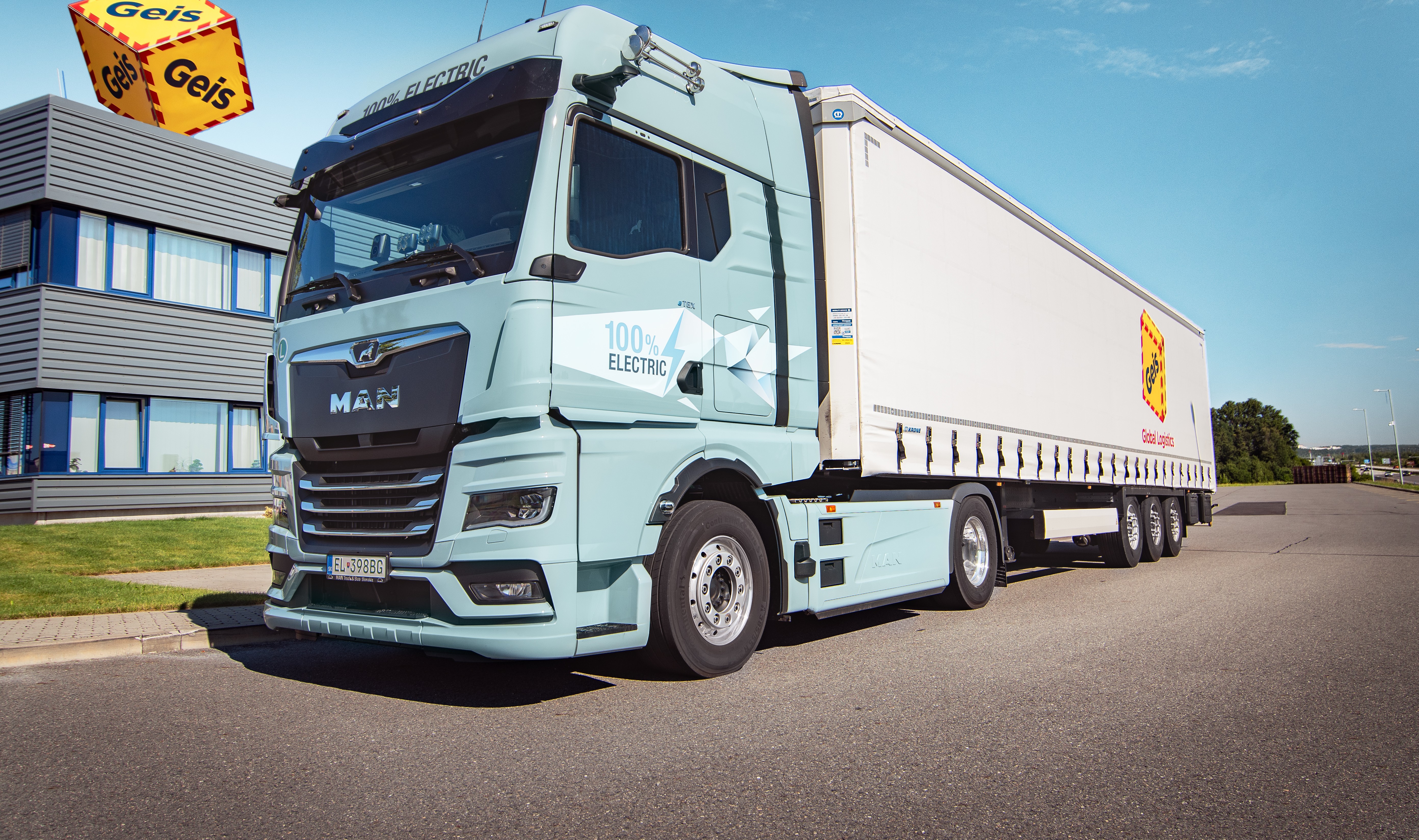

We have tested the MAN eTGX electric truck in regular operation on delivery routes in the Ostrava region. This is another concrete step in the ambitious MissionZero strategy, which aims to significantly reduce CO₂ emissions and transition to more sustainable logistics. The Geis Group is testing and deploying alternative drive systems across European countries, with electric vehicle already part of regular operations in the Hradec Králové region of the Czech Republic.
The Geis Group has been working for a long time to reduce the environmental impact of its activities. As part of our activities related to the MissionZero strategy, testing of the MAN eTGX 20.449 electric truck was recently carried out. The vehicle was deployed on daily delivery routes, mainly in urban and suburban traffic. Over four working days, it covered 365 kilometers with an average load weight of 10 tons.
The test confirmed zero CO₂ emissions, average consumption of 0.81 kWh/km, and a high level of energy recovery[1] (138.2 kWh). The driver appreciated the quiet operation of the vehicle, the powerful performance of the electric motor when starting, the comfort of the cab, and the low operating costs. The test also highlighted some of the well-known challenges associated with the operation of electric trucks, such as higher weight, limited range, and the current availability of charging infrastructure for longer routes.
When considering the deployment of electric trucks, it is important to take into account not only the environmental benefits, but also the economic aspects. The operation of an electric vehicle itself is more economical than that of a diesel variant. On the other hand, the purchase price of an electric tractor is currently about three and a half times higher than that of the most modern diesel vehicles, which means that the return on investment must be carefully considered. "It is always necessary to evaluate the specific operating conditions, possible uses, and also the client's preferences – whether they prioritize sustainability or whether cost optimization is a key factor for them," said Petr Družkovský, COO of Geis CZ.
Testing electric vehicles is one of a number of steps our company is taking to achieve MissionZero goal of becoming a climate-neutral company by 2040. We aim to reduce CO₂ emissions by 65% by 2030. In addition to testing alternative drive systems, we are undergoing extensive fleet modernization, investing in photovoltaics, modern buildings and technologies, and digitizing processes. We have also implemented a highly efficient energy management system for properties in three CEE countries – the Czech Republic, Slovakia, and Poland.
[1] Note: Energy recovery is a process in which kinetic energy is converted back into electrical energy during braking or deceleration and stored in the battery. This increases the overall efficiency of operation.